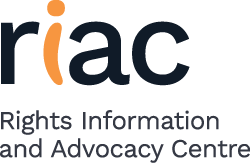The household of one of our clients faced a distressing situation when their electricity and gas were abruptly cut off by their neighbour, who gained access to their mail. Despite their concerns and complaints, the electricity company did not take the issue seriously or provide any transparency regarding their actions.
Due to the client’s mental health condition and disability, they could not navigate the process independently. Seeking assistance, they reached out to RIAC for advocacy support. Our advocate contacted the electricity company but received no satisfactory response. Frustrated by the lack of progress, an official complaint was submitted, which was met with an unsatisfactory response from the electricity company.
A complaint was filed with the Energy and Water Ombudsman Victoria. However, despite these efforts, a positive outcome was not achieved. The client also sought advice and information from the Consumer Action Law Centre, but they could not take on the case due to high demand and limited capacity.
A complaint was issued to the Office of the Australian Information Commission (OIAC) in light of privacy concerns. However, due to the high demand for OAIC services, a waiting period of over nine months was required before progress could be made. Eventually, a conciliation conference was held by the OAIC, providing an opportunity to discuss privacy and stolen identification issues.
Fortunately, a successful outcome was reached through the conference. The client’s debt was waived, and they received compensation for the stress and anxiety caused by the ordeal. Additionally, the electricity company committed to improving communication in the future, acknowledging the need for more user-friendly processes for individuals with mental health issues and disabilities. They have started investigating and planning adaptations to ensure accessibility.
At RIAC, we are dedicated to supporting individuals facing challenges like this and advocating for their rights. This case highlights the importance of our work in ensuring transparency, accessibility, and fair treatment for all. We will continue to fight for a more inclusive and equitable society.
To learn more about our advocacy services and how we promote accessibility, visit: riac.org.au/advocacy-2/
